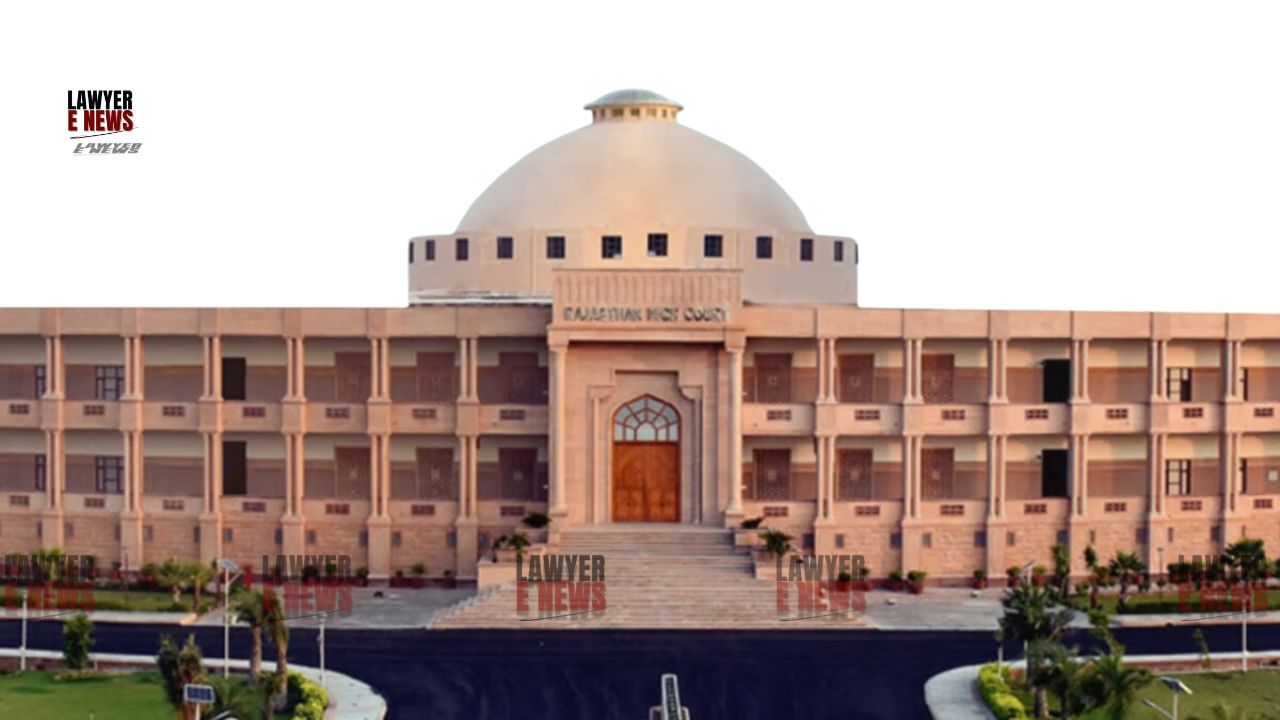-
by Admin
15 February 2026 5:35 AM



The Rajasthan High Court has directed a fresh inquiry into a long-standing land tenancy dispute involving appellant Joga Ram and the Doli Banam Mandir Charbhujaji. The judgment, delivered by a bench comprising Chief Justice Manindra Mohan Shrivastava and Justice Madan Gopal Vyas, emphasizes the necessity of following due process in correcting revenue entries, aligning with the full bench decision in Tara & 35 Ors. Vs. State of Rajasthan.
The case pertains to a parcel of land in Narlai, Tehsil Desuri, District Pali, initially recorded in the name of Joga Ram as a Khatedar (tenant). On November 30, 1987, the Sub-Divisional Officer (SDO) ordered the land to be recorded in the name of Doli Banam Mandir Charbhujaji, striking off Joga Ram’s name without due notice or hearing. The order, challenged through multiple appeals, was upheld by the Revenue Appellate Authority and subsequently by the Single Judge, prompting Joga Ram to approach the High Court.
The court underscored the procedural lapses in the SDO’s decision. “The correction of revenue entries without an enquiry is improper,” the bench observed. “Due process as per the Land Revenue Act, including notice and hearing, is essential.” The court highlighted that the appellant was not given an opportunity to present his case, which led to a significant civil consequence.
The High Court referred extensively to the full bench judgment in Tara & 35 Ors. Vs. State of Rajasthan, which clarified the rights of tenants cultivating land for a deity post the Rajasthan Land Reforms & Resumption of Jagir Act, 1952. The court noted, “If the appellant was cultivating the land as a tenant at the time of Jagir resumption, he would acquire tenancy rights. If found to be a hired laborer, he would not.”
The judgment dissected the principles surrounding the appellant’s rights, relying on established legal interpretations. “The legal position established in Tara & 35 Ors. (2015) must guide the determination of the appellant’s status,” the court stated. It was concluded that the prior orders did not adequately address the tenancy versus hired laborer distinction, necessitating a fresh, detailed inquiry.
Justice Madan Gopal Vyas remarked, “The necessity for procedural fairness in altering revenue records cannot be overstated. Proper notice and enquiry are the bedrock of just administrative actions.”
The Rajasthan High Court’s ruling reinforces the importance of procedural fairness in land disputes. By setting aside the previous orders and directing a fresh inquiry, the judgment aims to ensure that the appellant’s rights are adjudicated accurately per established legal principles. This decision underscores the judiciary’s commitment to upholding due process, potentially influencing future cases involving similar disputes.
Date of Decision: July 3, 2024
